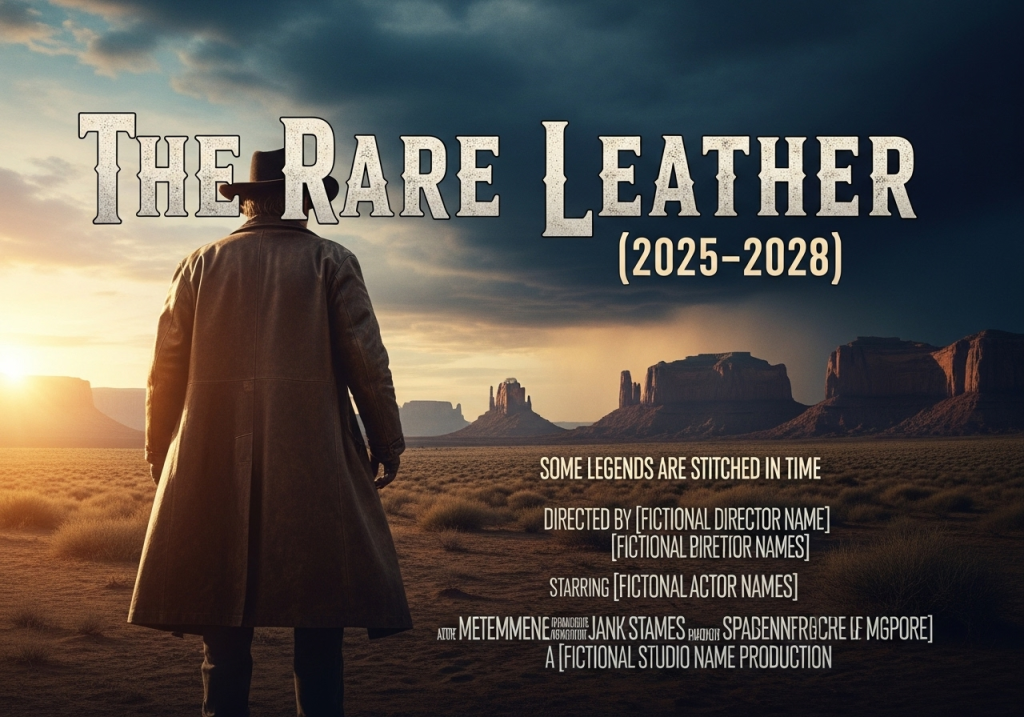Set in a shifting timeline between 2025 and 2028, The Rare Leather follows the intertwined lives of artisans, smugglers, and collectors in a world where a single hide—crafted from an extinct species—becomes the most coveted possession on the planet. The story begins in Morocco, where a reclusive craftsman discovers the last known piece of this legendary leather. His attempt to protect it from exploitation sets off a chain of events that draws in international thieves, fashion houses, and governments, all desperate to claim it for themselves. The leather itself becomes both a symbol of beauty and destruction, its history tied to greed, extinction, and the human hunger for status.
As the series expands, the leather travels across continents—from underground auction houses in Paris to the neon-lit skyscrapers of Hong Kong, and the secret vaults of New York elites. Each new location reveals a different angle of obsession: designers see it as the pinnacle of artistry, black-market traders see endless profit, and activists view it as a curse that should have been buried with the animal’s extinction. At its heart, the narrative questions whether humanity can ever separate desire from exploitation, especially when beauty and rarity are involved. The leather is never just an object; it becomes a mirror that reflects the corruption of those who chase it.

Amid the global scramble, the personal journeys of three central characters anchor the drama. Elena, a young leatherworker in Spain, inherits her grandfather’s warnings about the material’s dark legacy but finds herself tempted by its possibilities. Marcus, a former thief turned art broker in London, sees the leather as his chance at redemption—or damnation. And Jin, a rising Chinese entrepreneur, sees in it the possibility of building an empire that can rival the West. Their lives intersect violently and intimately, with betrayals, alliances, and unexpected bonds formed under the weight of this singular obsession. Each character embodies a different philosophy about ownership, art, and responsibility.
The Rare Leather also dives into the generational impact of exploitation, drawing parallels to colonial theft, environmental collapse, and the commodification of culture. In flashbacks, we see how the animal’s extinction was driven not only by fashion but by reckless imperial pursuits, creating a haunting backdrop that resonates with present-day ecological crises. These historical threads intertwine with the modern plotlines, reminding viewers that the past is never truly gone—it lingers in the choices made by descendants who inherit both the beauty and the sins of those before them. The series critiques not only greed but the systems that elevate rarity above responsibility.
By its third arc, the leather has become more myth than reality. Rumors swirl that it possesses qualities beyond material beauty—that it can’t burn, that it absorbs the essence of its owner, that it carries a curse. While rationalists dismiss these claims, the mythmaking around it fuels even greater demand. Governments step in, claiming the leather as cultural heritage, while criminal syndicates tighten their grip on its trade. Violence escalates, and the object’s symbolic weight grows so heavy that even those who once longed to possess it begin to fear it. The line between reverence and ruin blurs, and the leather becomes a catalyst for both creation and destruction.
The finale ties the journeys together in a reckoning that spans continents. Choices are made that decide whether the leather will be preserved, destroyed, or hidden forever. Yet the series refuses easy closure: even if the object itself vanishes, the questions it raised remain unresolved. Who decides what is worth preserving? What is the price of beauty when it comes at the expense of life itself? And can humanity ever learn to value creation over consumption? By the end of The Rare Leather, the audience is left with a sweeping saga that is part thriller, part cautionary tale, and part meditation on humanity’s endless, destructive hunger for what it cannot truly own.
